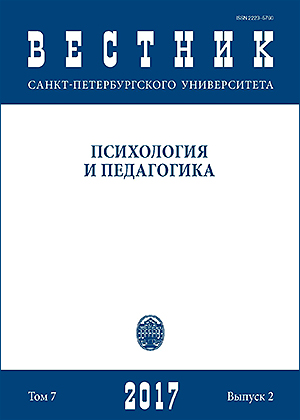Психологическое благополучие в Мексике: контекстуальные и психологические факторы
DOI:
https://doi.org/10.21638/11701/spbu16.2017.206Аннотация
Статья посвящена теоретическому анализу особенностей психологического благополучия в Мексике и различным факторам, способствующим его сохранению в пожилом и старческом возрасте. Данные мексиканских исследований, подтверждая основные мировые тренды, свидетельствуют о росте психологического благополучия с возрастом. В работе рассматриваются контекстуальные и психологические факторы благополучия. Среди контекстуальных факторов рассматриваются система пенсий, особенности социального взаимодействия и семейственность, утраты в пожилом возрасте. Психологические факторы представлены анализом гендерных аспектов, в частности феномена мачизма, духовности и религиозности, роли личностной автономии и социального капитала, одиночества, а также когнитивных нарушений и деменции. Теоретический анализ показал, что, несмотря на экономическую ситуацию в стране и специфическую систему пенсий, материальные факторы не являются единственными детерминантами психологического благополучия в пожилом возрасте.
Ключевые слова:
старение, психологическое благополучие, Мексика, психологические факторы
Скачивания
Библиографические ссылки
References
Загрузки
Опубликован
Как цитировать
Выпуск
Раздел
Лицензия
Статьи журнала «Вестник Санкт-Петербургского университета. Психология» находятся в открытом доступе и распространяются в соответствии с условиями Лицензионного Договора с Санкт-Петербургским государственным университетом, который бесплатно предоставляет авторам неограниченное распространение и самостоятельное архивирование.




